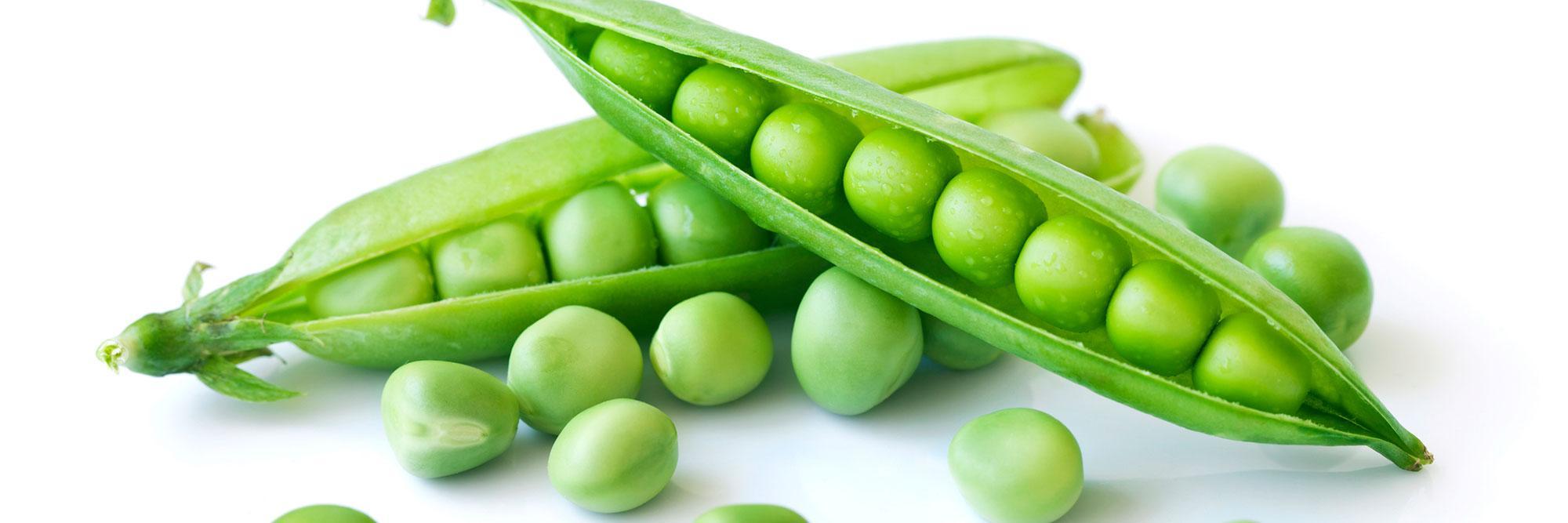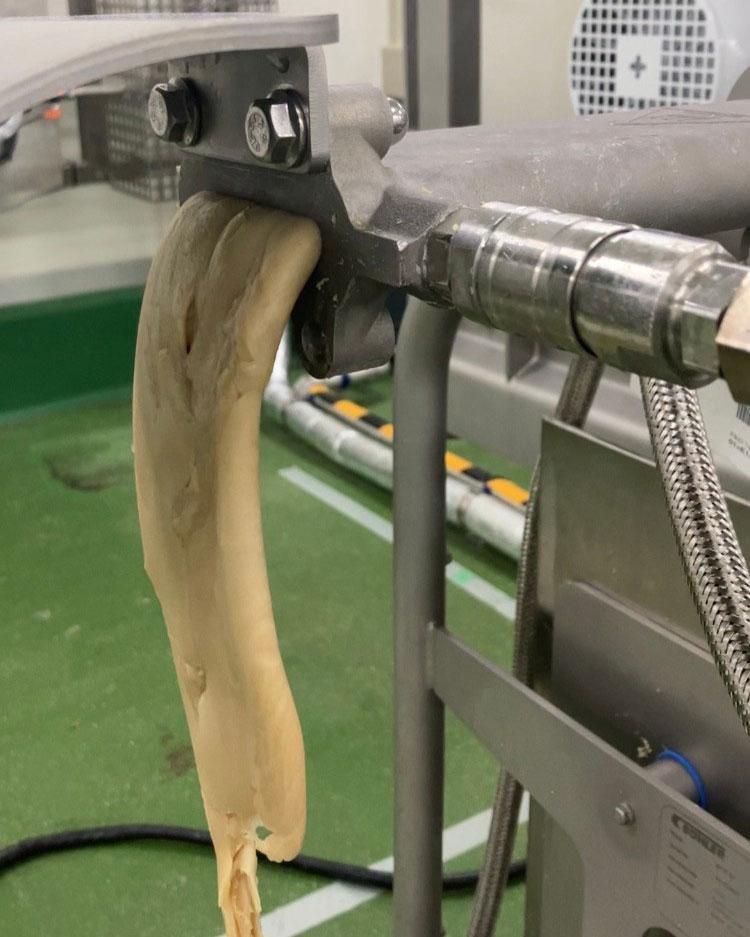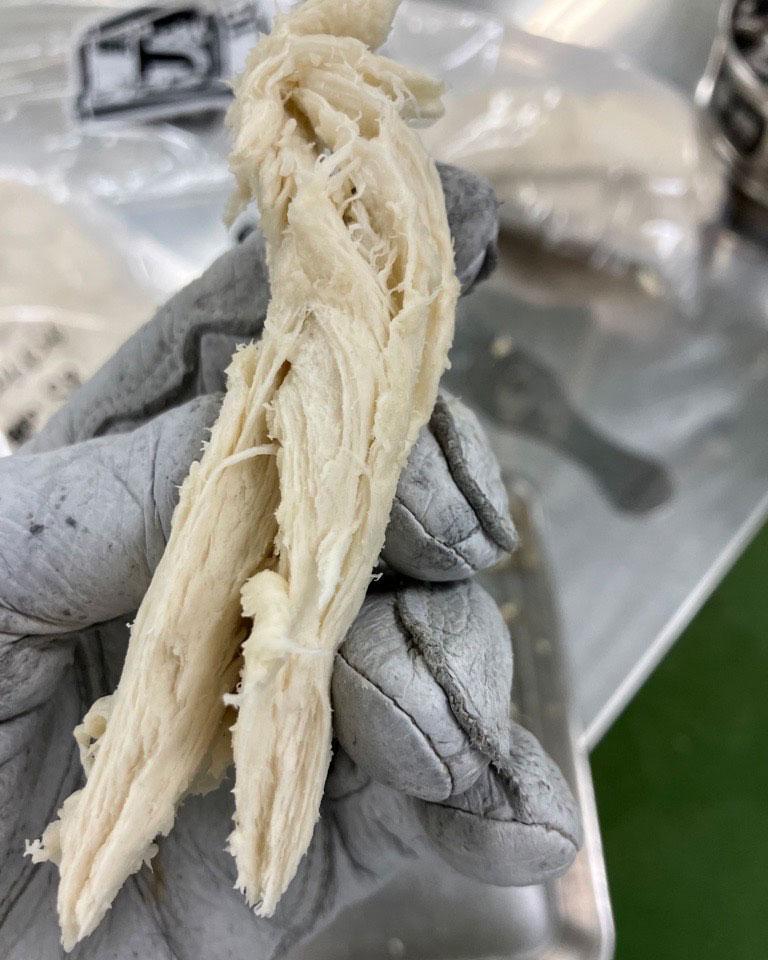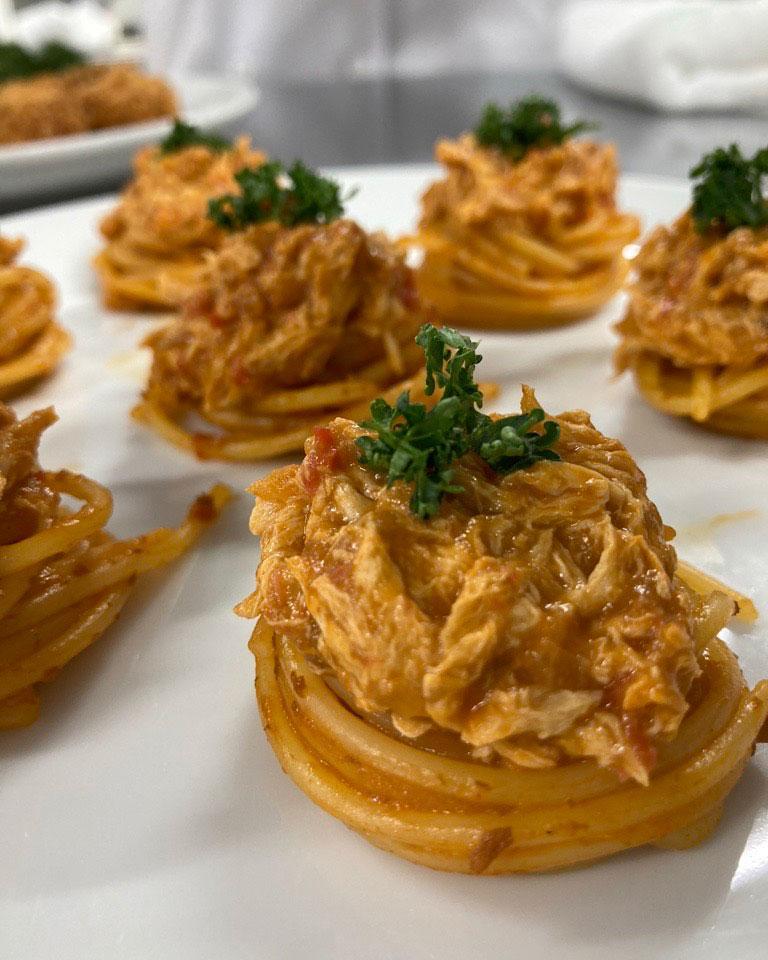
Creating New Delicious and Nutritious Food Solutions
Nissui is developing ingredients that enable the palatable consumption of plant-based proteins. Traditionally, soybeans--used in foods like natto and tofu--have been widely recognized as a plant-based protein source. The recent plant-based meat (alternative meat) trend has seen the emergence of textured soy protein (commonly known as "shokutan" or plant protein), which excellently replicates the elasticity and bite characteristic of animal meat and has served as an extender in products like hamburger patties. However, challenges in palatability persist, including distinctive grassy notes, bitterness, and difficulties in swallowing. Recently, protein sources have diversified beyond soybeans to include wheat, peas, fava beans, and chickpeas. These ingredients possess unique characteristics in terms of taste, flavor, and physical properties, offering potential for producing food ingredients with palatability profiles unattainable through soy protein alone.
While texturization and processing methods in this field remain under-researched, Nissui applies its extrusion technology--developed through years of surimi research--to texturize plant proteins using mechanical engineering principles. This extrusion technology, which involves melting and structuring proteins through the precise application of heat and pressure, is fundamental to our approach.
Research Approach
Nissui possesses protein processing technology cultivated through extensive surimi research experience. In particular, two technologies developed over 30 years ago have gained significant global attention in the plant-based food sector: extrusion cooking, which texturizes surimi through high-temperature, high-pressure processing, and a specialized technique that creates fiber-like structures by extruding surimi through microscopic nozzles and subjecting it to acid denaturation. These technologies were originally developed to precisely replicate the muscle fiber structure and texture of seafood like crab and scallops. By integrating these ocean-derived technologies with contemporary innovations, we are working to develop new food ingredients that will meet consumer expectations.



Figure. Production process for texturized plant protein and pea protein-based spaghetti
Research Results
This research has led to the establishment of production methods for 100% plant-based imitation products that accurately recreate crab's distinctive fibrous texture using pea protein.
The rapid growth of the global population is expected to create an imbalance where protein demand exceeds supply capacity. This situation could impact consumers' lives through increased prices for meat and fish products. Consequently, there is growing worldwide demand for the active utilization of alternative proteins, including plant-based options.
Established in 1911, Nissui has committed to providing Japanese consumers with stable supplies of animal protein through marine products. Building on this heritage of over 110 years, Nissui now undertakes the mission of contributing again to global protein supply. Our research focuses on establishing technologies for texturizing plant proteins into palatable food products. Through these efforts, we aim to contribute to consumer health and dietary enjoyment by offering not only alternatives to existing meat and fish products but also innovative protein-based foods.
